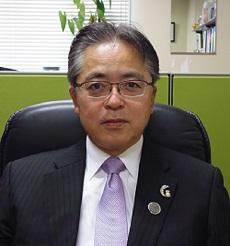Message
Profile of the Graduate School of Health Sciences, Kagoshima University

By Yasuaki Akasaki, Dean, Graduate School of Health Sciences, Kagoshima University
The Graduate School of Health Sciences, Kagoshima University has a Master’s program and a PhD program. The Graduate School aims to cultivate expert professionals with a high level of specialist expertise who possess self-control, a forward-looking mentality and global vision, as well as medical personnel who are capable of becoming educators and researchers. The Graduate School of Health Sciences has also contributed to society by generating a considerable amount of research results, which have been disseminated both within Japan and overseas.
Healthcare in Kagoshima Prefecture has a number of special features, including Kagoshima’s many outlying islands and remote communities, and the rapid growth in the number of areas suffering from a shortage of medical resources, which has accompanied the aging of the population. The Graduate School of Health Sciences is working to cultivate talented individuals with superior practical implementation capabilities, research capabilities and teaching capabilities, who can, through collaboration between people in different specialties, contribute towards the solving the unique healthcare challenges affecting these areas.
In light of the impact of the nuclear disaster that occurred as a result of the Great East Japan Earthquake of 2011, the establishment of a medical system for treatment of radiation exposure became an urgent priority for Kagoshima Prefecture, which has a nuclear power plant located within the Prefecture. In order to cultivate nurses with a high degree of practical expertise who possess specialist knowledge and techniques in the field of radiology nursing and are able to demonstrate a high level of problem-solving ability, a specialist radiology nursing course was established at the Graduate School of Health Sciences in the 2012 academic year.
In addition, with the aim of cultivating self-directed midwives with outstanding practical implementation abilities, starting from the 2014 academic year, Kagoshima University’s midwife cultivation program was expanded to include a graduate school level course. The course was structured to include classes on perinatal care and on care management in rural areas and outlying islands, etc., and is intended to cultivate talented individuals with superior practical implementation skills who are capable of implementing mother-and-child healthcare management in local communities. Furthermore, with the aim of making a major contribution as trained providers of cradle-to-grave support to communities in isolated islands and regions, course on nursing in isolated islands and regions was established in 2019.
The curriculum at the Graduate School of Health Sciences has been designed so that classes relating to healthcare provision on outlying islands and in remote areas, team-based healthcare provision and international communication are included as required courses for both the Master’s and PhD programs, regardless of specialty, so that it will be possible to use teams of personnel with different specializations to address and solve the healthcare issues affecting outlying islands and remote communities, in line with the special characteristics of Kagoshima Prefecture.
To promote internationalization, faculty members of the Graduate School of Health Sciences are sent on overseas assignments under the Young Academics Overseas Training Support Project, and the Graduate School has also introduced the Foreign Language Communication Course, a School-wide program, to provide support for students who may need to give presentations at academic conferences in other countries. By arranging for students to undertake training at facilities associated with the Red Cross College of Nursing at Chung-Ang University in South Korea and at a midwife training facility in the U.K., the Graduate School of Health Sciences is undertaking the cultivation of talented individuals who will be able to make a contribution towards the promotion of international healthcare activities.
A high percentage of the students who enroll at the Graduate School of Health Sciences are mature students. With the aim of making it easier for these students to balance work and study, the Graduate School has adopted systems that allow students to take longer than usual to complete their degree, or to complete the degree earlier than usual, depending on their circumstances; we also recognize credits that students have obtained while studying at other universities. With regard to research guidance and thesis supervision, the Graduate School arranges for several faculty members to provide detailed research guidance and thesis supervision for each student.
Many of the graduates of the Graduate School of Health Sciences’ Master’s program go on to play important roles in local healthcare activities and health education, by serving as specialist medical personnel and educators. Some students go on to take a PhD after completing their Master’s degree, achieving an even higher level of academic expertise. Reflecting the shortage of specialists able to address radiation-related health problems, graduates of the Graduate School’s radiology nursing course have been invited by the Ministry of the Environment to serve as radiation specialists at various government agencies. If you have the ambition to become an expert professional capable of taking on a supervisory role, then you may want to consider applying to enroll at Kagoshima University’s Graduate School of Health Sciences.










